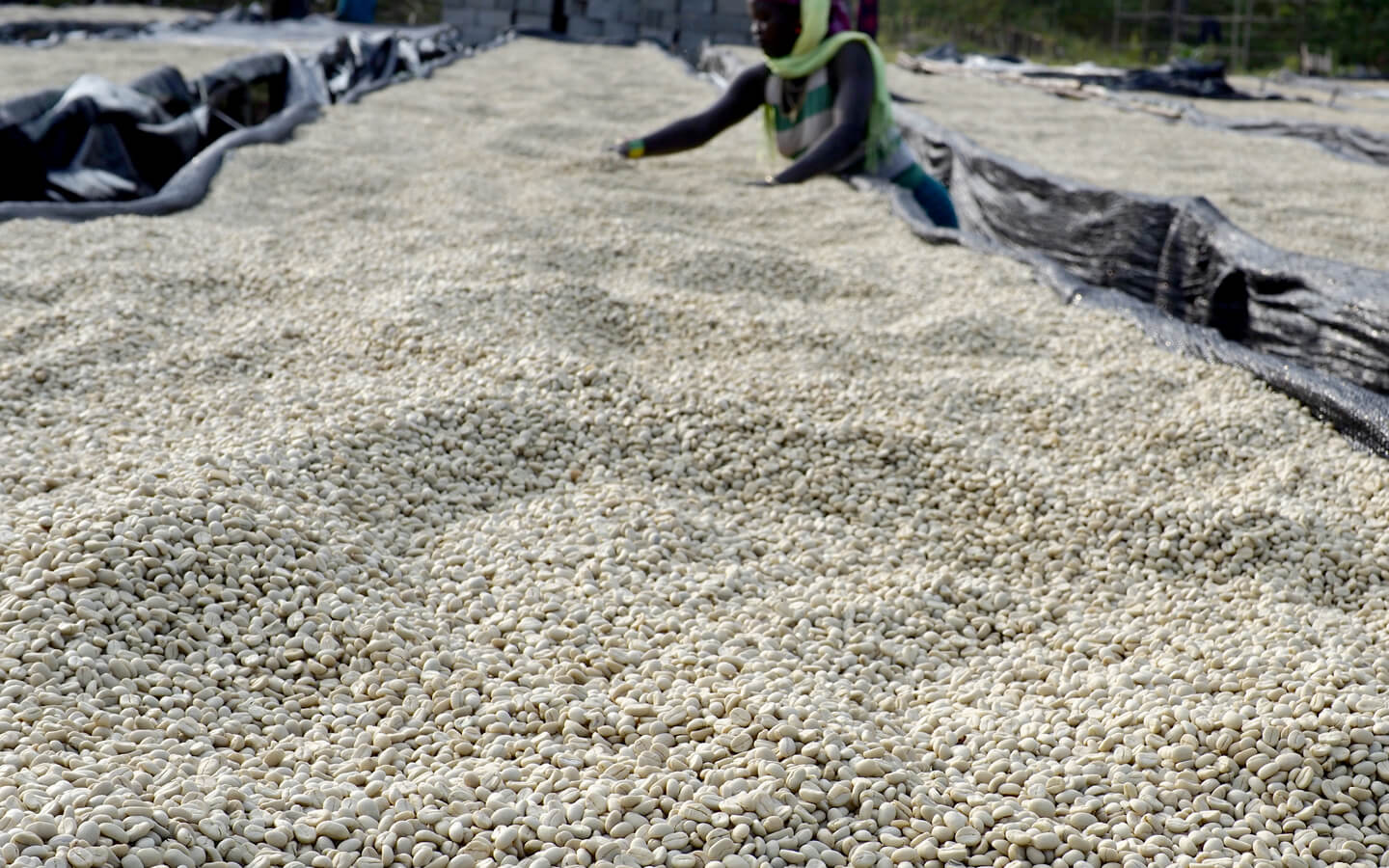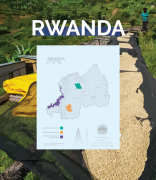The influence of Zhuoyue Cup on Rwanda Coffee Industry Flavor characteristics of washing treatment of Rwandan Coffee beans
The 2008 excellent Cup encourages coffee farmers to circulate and promote the ranks of high-quality beans. Before the introduction of the excellent cup, the vast majority of coffee in Rwanda was disorderly, there was no obvious difference in quality, and there was no specific description of the flavor characteristics of high-quality beans. After the introduction of the excellent Cup, international experts began to record and discuss in depth so that the local characteristics of Rwandan coffee can be easily promoted internationally. Since then, the winner of the Zhuoyue Cup has become famous, which has inspired coffee farmers who used to focus on the quantity of coffee fruit to work on quality and work closely with the washing station to come up with the batch with the best flavor. Excellence is regarded as a strong driving force for water washing stations and coffee farmers to produce good coffee. The parity and popularity of coffee farmers' areas and nearby water washing stations have greatly increased, and coffee trading volume and prices have increased. Rwandan Coffee also took the opportunity to get rid of the impression of "commercial coffee" and changed into "boutique coffee". Coffee or processing plants with the name of excellent Cup can not only get the attention of international buyers, as long as they can come up with high-quality beans, they can also sell them at a low price, forming a positive trading model.

Coffee has become a major source of government revenue, so it has also become a tool to improve the progressive society. A large number of washing plants have been built all over the country, giving up to 500000 small farmers easy access to resources and training.
The rolling hills and fertile volcanic soil of Rwanda are very suitable for growing coffee, especially the coffee in the south and west is bright, sweet and delicate. Butali and the washing stations around Lake Kivu in the west were developed relatively early, so they shone brilliantly after the Zhuoyue Cup, and can be called the gold medal representative of the coffee street in Rwanda.
Processing method

Washing-Coffee picking, transportation, desizing, fermentation (12-18 hours), soaking (24 hours), washing and drying the average farm in Rwanda is very small, with a "medium" farm of less than 1 hectare, up to 4 hectares. The coffee is picked by the farmers themselves and transported to the washing station in the form of cherries, where the coffee is classified by density when de-pulping. It is fermented in a cement tank and is usually soaked after fermentation before washing and drying. Washed coffee is almost exclusively produced here, with few exceptions to Naturals.
Coffee harvest time
March to June
Important Notice :
前街咖啡 FrontStreet Coffee has moved to new addredd:
FrontStreet Coffee Address: 315,Donghua East Road,GuangZhou
Tel:020 38364473
- Prev

Rwandan coffee beans taste characteristics| History of Rwandan Coffee Varieties and Their Harvesting
Rwanda is not a traditional coffee-producing country. In fact, the local people do not have the habit of drinking coffee. Almost 100% of the coffee produced is exported, and the annual output is more than 18000 tons, which is a huge number. So where did all these coffee beans come from? Rwanda's harvest season is generally from March to August. Due to changes in weather conditions, there is usually a higher yield in April, but there are also July.
- Next

Flavor and taste characteristics of Rwandan coffee beans and its historical development what is the "potato defect"
The history of coffee bean production in Rwanda | what is the defect of potatoes? if a coffee bean is described as bright acidity, such as cranberries or grapefruit, flowers and sweet herbs such as chamomile, and sweet nuts such as almonds or macadamia nuts. Would you like to try this kind of coffee? So the editor will walk into Rwanda with you today. Let's get to know each other first.
Related
- Detailed explanation of Jadeite planting Land in Panamanian Jadeite Manor introduction to the grading system of Jadeite competitive bidding, Red bid, Green bid and Rose Summer
- Story of Coffee planting in Brenka region of Costa Rica Stonehenge Manor anaerobic heavy honey treatment of flavor mouth
- What's on the barrel of Blue Mountain Coffee beans?
- Can American coffee also pull flowers? How to use hot American style to pull out a good-looking pattern?
- Can you make a cold extract with coffee beans? What is the right proportion for cold-extracted coffee formula?
- Indonesian PWN Gold Mandrine Coffee Origin Features Flavor How to Chong? Mandolin coffee is American.
- A brief introduction to the flavor characteristics of Brazilian yellow bourbon coffee beans
- What is the effect of different water quality on the flavor of cold-extracted coffee? What kind of water is best for brewing coffee?
- Why do you think of Rose Summer whenever you mention Panamanian coffee?
- Introduction to the characteristics of authentic blue mountain coffee bean producing areas? What is the CIB Coffee Authority in Jamaica?

